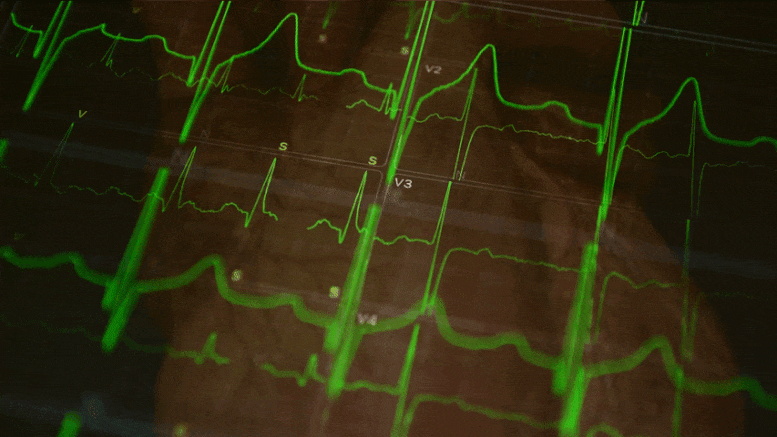
Journal of the American College of Cardiology focus seminar looks at history of COVID-19, plus relationship with cardiometabolic syndrome, myocardial injury, and arrhythmias.
Since the emergence of the COVID-19 pandemic, the impact of the virus on the heart has become more prevalent, with clinicians acting in real time to effectively help heart disease patients and those at higher risk who contract coronavirus. The Journal of the American College of Cardiology has issued a three-part focus seminar on COVID-19 in 2020 to address the complex relationship between COVID-19 and the heart.
Coronavirus and Cardiometabolic Syndrome: JACC Focus Seminar
A new COVID-related cardiometabolic syndrome composed of four drivers — abnormal adiposity (excess body fat), dysglycemia (abnormality in blood sugar stability), dyslipidemia (abnormal level of cholesterol and other fats in the blood), and hypertension (high blood pressure) — is discussed in this paper. Researchers give recommendations for these patients, especially those with diabetes, for preventing heart disease while navigating the COVID-19 pandemic. Recommendations include pharmacotherapy and lifestyle changes, such as diet and exercise routines, be adopted and maintained within social distancing guidelines. Researchers said that disruptions in work and school routines and the convenience of ordering in food during social distancing and stay at home orders can negatively impact health habits. Patients should receive healthy lifestyle instructions.
“The role of healthy lifestyles and pharmacotherapy targeting metabolic drivers to reduce cardiovascular risk is well-established,” said Jeffrey I. Mechanick, MD, lead author of the study and professor of medicine and medical director of the Marie-Josee and Henry R. Kravis Center for Cardiovascular Health at Mount Sinai Heart. “However, lessons learned from the COVID-19 pandemic support shorter-term benefits of these interventions, similar to observed benefits on acute cardiovascular disease outcomes.”
Coronavirus Historical Perspective, Disease Mechanisms, and Clinical Outcomes: JACC Focus Seminar
Researchers in this study address the global concerns COVID-19 has raised for the health and safety of vulnerable populations, including heart disease patients. According to the paper, most people infected experience mild symptoms and recover, but the elderly and people with comorbidities are more susceptible to infection and serious illness and complications, with the development of acute respiratory distress syndrome and microthrombi in the lungs, heart, and kidneys appearing to be the drivers of fatal disease. Researchers said that the long-term risk of serious illness for survivors of severe cases of COVID-19 remain uncertain, but early observations are concerning.
“It is plausible to assume that COVID-19 survivors will be more vulnerable to long-term cardiac morbidity,” said Sean P. Pinney, MD, lead author of the study and a professor of medicine, cardiology, at the University of Chicago. “Longitudinal follow-up with multi-modal imaging and physiological testing will be important to describe the full extent of acquired COVID-19 heart disease.”
Coronavirus and Cardiovascular Disease, Myocardial Injury and Arrhythmia
Cardiovascular disease is the leading cause of death worldwide and rates are increasing. COVID-19 was originally thought to be a virus impacting the lungs, but it is now clear that it can also impact and cause damage to the heart, with a higher risk of complications for the many patients worldwide who already have heart disease or are at increased risk. In this paper, researchers discuss the underlying mechanisms producing cardiovascular damage among hospitalized patients with severe COVID-19 infection, including that of thromboembolic disease and arrhythmia. According to researchers, myocardial injury occurs in about one-quarter of hospitalized COVID-19 patients and is associated with a greater need for mechanical ventilator support and higher hospital mortality.
“Myocardial injury results in detectable increases in serum troponin, varying degrees of ventricular dysfunction, and relatively frequent cardiac arrhythmias,” Pinney, one of the study authors, said. “Whether these effects are simply associated with poor patient outcomes, including death, or directly contribute to patient mortality is as yet uncertain.”
Reference: “Coronavirus and Cardiometabolic Syndrome – JACC Focus Seminar” by Jeffrey I. Mechanick, Robert S. Rosenson, Sean P. Pinney, Donna M. Mancini, Jagat Narula and Valentin Fuster, 19 October 2020, Journal of the American College of Cardiology.
DOI: